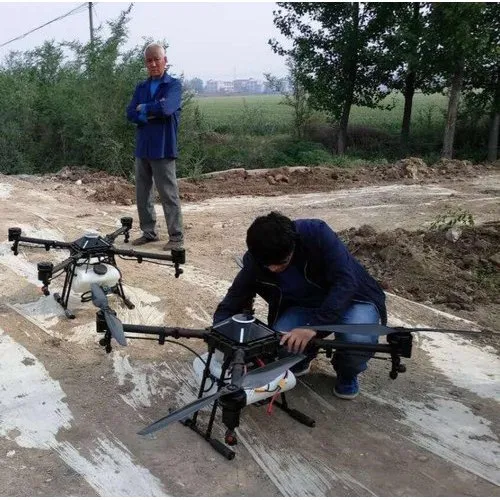Agricultural Drone Camera
₹300,000.0
Camera Range: 25 to 30 meters
Frequency Ranges: 2.400 – 2.483 GHz
Battery Backup: 30 minutes
Voltage: 24 V
Load Capacity: 5-20 Litres
Battery: 2000 mAh
Body Material: Carbon Fiber
Flying Range: 2 kilometers
Operating Temperature Range: -10 to 40 degrees Celsius
Power Source: Battery.
Agricultural Drone Camera:
Agricultural drones are soaring above fields, catalyzing a revolution in farming and forestation practices. Transitioning from traditional methods, these unmanned aerial vehicles bring unprecedented efficiency and sustainability to agricultural landscapes.
To commence, drones equipped with high-resolution cameras capture detailed images of fields, providing farmers with real-time insights into crop health and growth patterns. This data empowers farmers to make informed decisions, identify potential issues, and implement timely interventions, minimizing crop losses.
In the realm of precision agriculture, drones play a pivotal role in soil analysis. Utilizing sensors, these drones collect data on soil composition and moisture levels, enabling farmers to tailor irrigation and fertilization practices. This targeted approach not only conserves resources but also enhances overall crop yield.
In forestry, drones are instrumental in reforestation efforts. Tree-planting drones navigate challenging terrains, effortlessly dispersing seeds and saplings with precision. This accelerates the process of reforesting vast areas, contributing to biodiversity conservation and mitigating the impact of deforestation.
The active role of drones extends to crop monitoring during the growing season. Equipped with infrared sensors, they detect subtle changes in plant health, allowing farmers to address potential issues such as pests or diseases before they escalate. This proactive approach minimizes the need for chemical interventions, promoting environmentally friendly farming practices.
Agricultural Drone Camera: Furthermore, drones facilitate the efficient application of pesticides and fertilizers. Equipped with spray nozzles, they precisely target specific areas, reducing chemical usage and preventing overuse. This not only ensures the health of crops but also mitigates the environmental impact associated with excessive chemical applications.
In conclusion, agricultural drones are not just futuristic gadgets; they are transformative tools reshaping the agricultural and forestry landscape. Their versatility in crop monitoring, soil analysis, and reforestation endeavors underscores their pivotal role in fostering sustainability, efficiency, and innovation in farming and forestation practices.
You must be logged in to post a review.
Q & A
Drones are a valuable tool in achieving these objectives, and their role in agriculture can be summarized as follows: Drones equipped with multispectral or hyperspectral sensors can detect subtle changes in crop health that may not be visible to the naked eye. This early detection can help prevent the spread of diseases and pests. Drones can create detailed maps of fields, which can be used for soil analysis and to create variable rate prescriptions for inputs like fertilizers. Drones can also be used for monitoring livestock, helping farmers keep track of their animals' health, location, and behavior.
General Inquiries
There are no inquiries yet.



Reviews
There are no reviews yet.